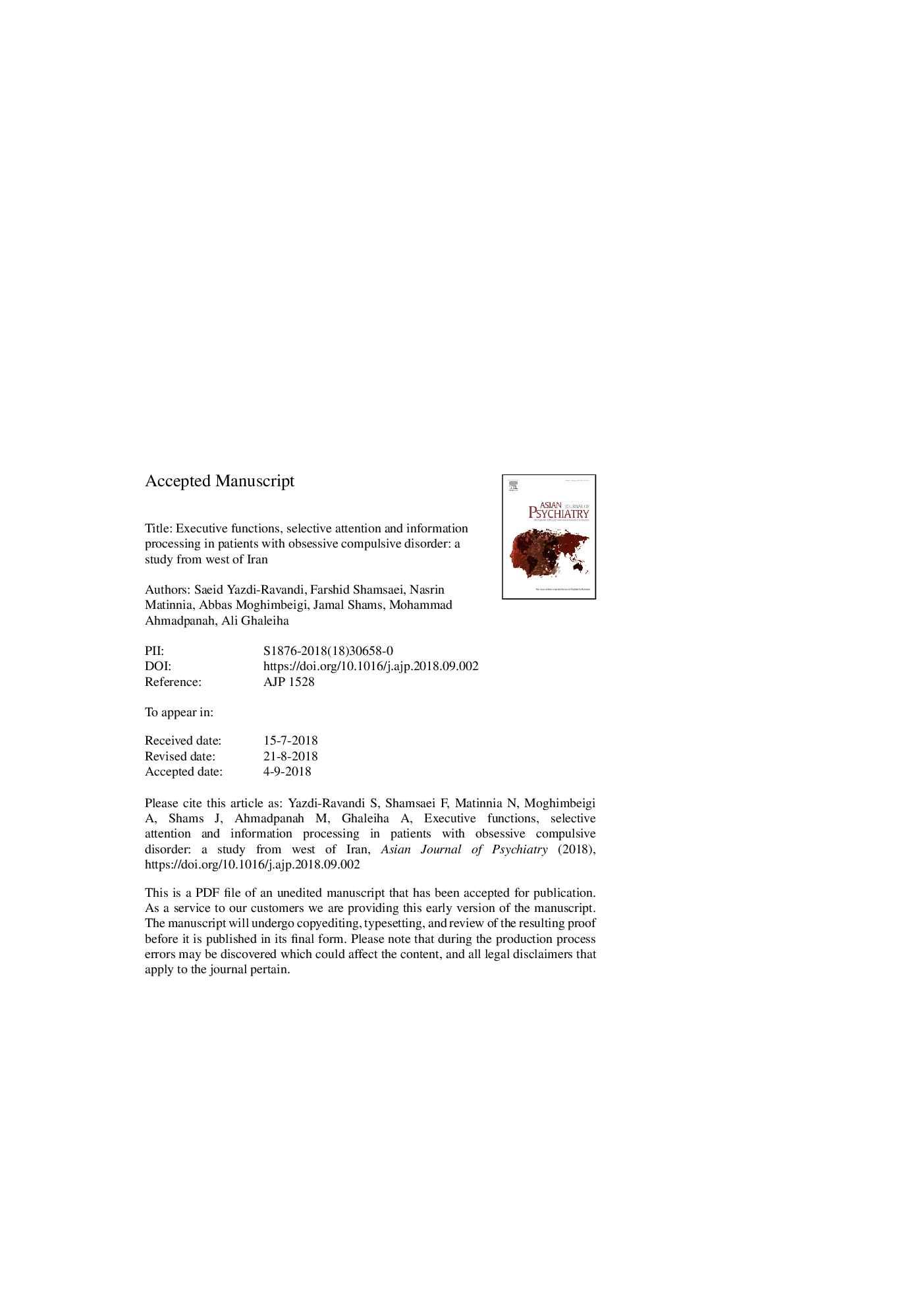| Article ID | Journal | Published Year | Pages | File Type |
|---|---|---|---|---|
| 11001415 | Asian Journal of Psychiatry | 2018 | 21 Pages |
Abstract
Obsessive-compulsive disorder (OCD) is associated with cognitive dysfunction. Deeper and wider knowledge of the cognitive components of these patients can play an important role in better understanding of this disorder. This study aimed to compare executive function, selective attention and information processing in OCD patients and healthy controls. The current study was performed on 54 patients meeting DSM-5 criteria for OCD and 54 healthy subjects who matched with patients in gender, age, marital and educational status. The cognitive functions were assessed by The Stroop test, Wisconsin Cart Sorting Test (WCST), Paced Auditory Serial Addition Test (PASAT) and the Yale-Brown Obsessive-Compulsive Scale (Y-BOCS). The performance of the OCD group was significantly worse than the healthy group in comparison with the all subscales of the Stroop and WSCT tests. Also, functions in information processing among two groups were statistically significant for 3- and 2-second PASAT. The results demonstrated that OCD patients have deficits in several aspects of cognitive functions. Hence, the treatment of these patients can be contributed by paying more attention to these deficits.
Keywords
Related Topics
Life Sciences
Neuroscience
Neuroscience (General)
Authors
Saeid Yazdi-Ravandi, Farshid Shamsaei, Nasrin Matinnia, Abbas Moghimbeigi, Jamal Shams, Mohammad Ahmadpanah, Ali Ghaleiha,
